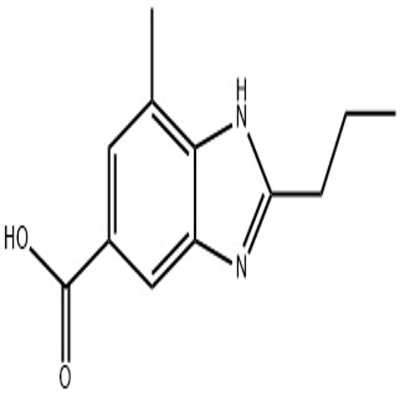-
Categories
-
Pharmaceutical Intermediates
-
Active Pharmaceutical Ingredients
-
Food Additives
- Industrial Coatings
- Agrochemicals
- Dyes and Pigments
- Surfactant
- Flavors and Fragrances
- Chemical Reagents
- Catalyst and Auxiliary
- Natural Products
- Inorganic Chemistry
-
Organic Chemistry
-
Biochemical Engineering
- Analytical Chemistry
-
Cosmetic Ingredient
- Water Treatment Chemical
-
Pharmaceutical Intermediates
Promotion
ECHEMI Mall
Wholesale
Weekly Price
Exhibition
News
-
Trade Service
Methyl 4-Chloropyrimidine-5-carboxylate, also known as MCP, is an organic compound that is commonly used as an intermediate in the production of a variety of chemicals and pharmaceuticals.
The compound is manufactured through a series of chemical reactions, known as a synthesis route, which involves a number of steps and various chemical reagents.
The synthesis route for MCP involves both upstream and downstream products, which are critical components of the overall manufacturing process.
Upstream products are the raw materials and intermediates that are used to produce the final product, in this case, MCP.
The upstream products for the synthesis of MCP can include chemicals such as chlorine, hydrogen chloride, carbon tetrachloride, and 4-chloropyrimidine.
These chemicals are used as reagents in the various synthesis steps to produce the desired product.
The first step in the synthesis of MCP is the reaction of 4-chloropyrimidine with carbon tetrachloride in the presence of a solvent, such as ethyl acetate.
This reaction forms the intermediate compound 4-chloropyrimidine-5-carboxyl chloride.
The next step involves the reaction of this intermediate with hydrogen chloride, again in the presence of a solvent, to form the carboxylic acid.
The downstream products, on the other hand, are the final products that are produced using the MCP as an intermediate.
These products can include a variety of chemicals and pharmaceuticals, such as anti-malarial drugs, anti-epileptic drugs, and anti-bacterial agents.
These products are produced by a variety of chemical reactions that involve the use of MCP as a starting material.
One of the main advantages of the upstream and downstream products in the production of MCP is that they allow for the production of a wide range of chemicals and pharmaceuticals.
By using MCP as an intermediate, a variety of different products can be produced, providing a high level of flexibility and versatility in the overall manufacturing process.
In addition, the use of upstream and downstream products allows for the efficient and cost-effective production of MCP.
By using a variety of raw materials and intermediates, the overall production process can be optimized, resulting in a more efficient and cost-effective production of the final product.
Furthermore, the use of upstream and downstream products can help to ensure the quality and consistency of the final product.
By using high-quality raw materials and intermediates, and by carefully controlling the production process, the quality of the final product can be effectively maintained.
In conclusion, the use of upstream and downstream products is a critical component of the overall production process for MCP.
The upstream products, such as 4-chloropyrimidine and carbon tetrachloride, are used as reagents in the synthesis process to produce the desired product.
The downstream products, such as anti-malarial drugs and anti-epileptic drugs, are produced using MCP as a starting material.
The use of upstream and downstream products allows for the production of a wide range of chemicals and pharmaceuticals, providing a high level of flexibility and versatility in the overall manufacturing process.





![benzyl N-{2-[4-(4,4,5,5-tetramethyl-1,3,2-dioxaborolan-2-yl)phenyl]ethyl}carbamate](https://file.echemi.com/fileManage/upload/goodpicture/20210823/m20210823171124543.jpg)

